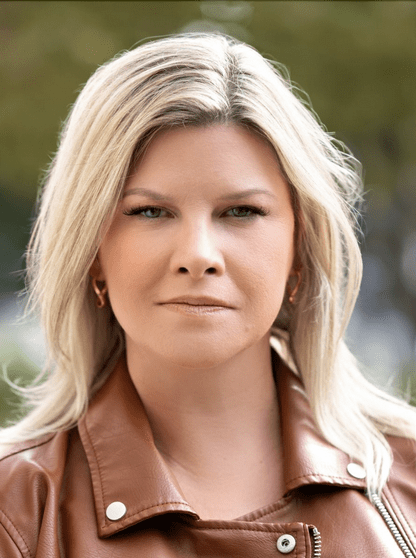The Liberal Leadership Debates: It’s All About Carney

By Lori Turnbull
February 18, 2025
Since Prime Minister Justin Trudeau announced on January 6th that he intends to resign, popular support has been moving from the Conservatives to the Liberals. For months, the Conservatives enjoyed as much as a 20-point lead against the Liberals. Today, Angus Reid reports that Mark Carney’s surging popularity has all-but closed that gap, with the Liberals in a margin-of-error horse race at 37% to the Tories’ 40%.
Equally interesting, Carney’s numbers in both previous party preference and in Quebec: 42 per cent of 2021 NDP voters saying they would support the Liberals under his leadership. In Quebec, the Liberals split evenly with the Bloc Québécois (31% Liberal, 30% BQ) and lead the CPC by nine points.
If this trend continues, the Liberals stand to be in a highly competitive position in the next election. This game has changed entirely from what it was even two months ago.
As part of their leadership selection process, the Liberals are staging two debates for the five remaining candidates: one French and one English, both in Montreal, on February 24th and 25th. To maximize their chances in the next election, the best outcome for the Liberals is for Carney to shine as brightly as possible at these events. Leadership candidates’ debates are usually about competitors trying to differentiate themselves from one another, increase their visibility, and cultivate down-ballot support from other candidates’ followers.
But this time, none of that really matters. The Liberals have a new lease on life now that Trudeau is stepping aside, and Carney is the one who has harnessed that momentum. He’s raised a ton of money (his campaign says they’ve brought in $1.9 million). He’s got a long list of endorsements, including from cabinet ministers who served with his closest competitor, Chrystia Freeland. A Leger poll has the Liberals tied with the Conservatives if Carney becomes leader. He could be the unicorn that could save the Liberals from the trainwreck they had been hurtling towards. At this point, it would be crazy for the Liberals to go with anyone else. The subtextual goal in the debates will not be to showcase the candidates but, instead, to kick off the election campaign.
Normally, the front-runner candidate need only get through debates without messing up and blowing their lead. But this time it’s different. Carney likely already has the leadership in the bag. The debates are about Carney making the case to Canadians that he’s the right choice to lead the country in a highly tumultuous time. It goes without saying that the vast majority of people won’t watch the debates in real time. But clips from them will make the rounds in the form of political ads from both the Liberals and the Conservatives. Carney needs to look like a prime minister.
Attack lines alleging that Carney is ‘just like Justin’ aren’t sticking, which has sent the Conservatives into an urgent soul-searching, brand-defining pivot exercise.
The Liberals should be thankful that Carney never gave in to Trudeau’s advances about joining his government, as that would have tainted Carney forever. Having stayed on the sidelines, he is now poised to show up in his own skin — not as a Trudeau minister, but as a former Bank of Canada and Bank of England governor who went on to be successful in the private sector. Attack lines alleging that Carney is “just like Justin” aren’t sticking, which has sent the Conservatives into an urgent soul-searching, brand-defining pivot exercise.
The Conservatives tend to be the masters of defining their opponents before they can define themselves. But now that the Tories are the ones in message-seeking mode, Carney needs to leverage this moment and tell Canadians who Poilievre is. Without coming across as superior or snide, Carney needs to drive home his point that Poilievre is a lifelong politician who is ill-prepared for the challenge of negotiating through a trade war with the United States. This is easier said than done because as soon as Carney starts down that path, he risks confirming the Conservatives’ portrayal of him as an elitist.
The Conservatives are still in the stronger position in the polls and none of this is meant to suggest that Carney should be picking out drapes for Rideau Cottage (or wherever the next prime minister will live) just yet. However, the changing polling data speak to the fact that there has always been softness in the support for Pierre Poilievre. His negative impressions have typically been as high as his positives, but voter fatigue with Trudeau was driving people to Poilievre — even those who didn’t like him. Those who were willing to hold their nose to vote for Poilievre now have another option in Mark Carney.
None of this would be possible without Trudeau’s departure, but the other massive game changer has been the disruption caused by Donald Trump. His tariff threats combined with his bizarre comments about Canada becoming the 51st state have reset the ballot question for the next federal election. Feelings of national attachment are soaring as we fortify ourselves against Trump’s attacks.
The election will not be about Trudeau or the carbon tax — the fight the Conservatives wanted. Instead, it will be about Canada and our future. Party leaders will need to base their appeals to voters on their visions for the country. None of this means that Pierre Poilievre and the Conservatives won’t still win. It means that, instead of building arguments against Trudeau, Poilievre now has to make the case for himself.
Policy Columnist Lori Turnbull is a professor in the Faculty of Management at Dalhousie University.
